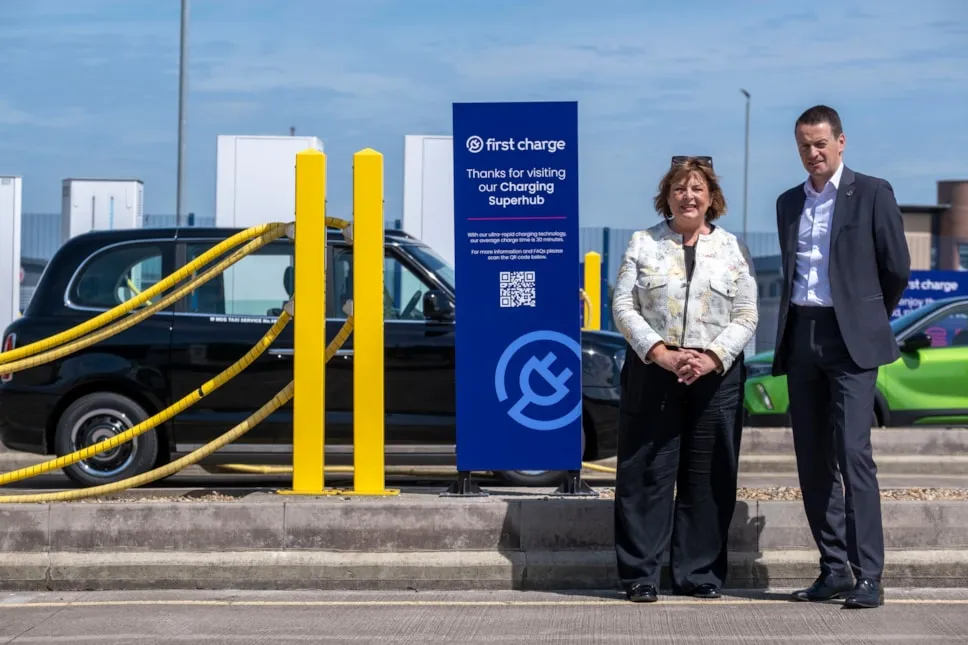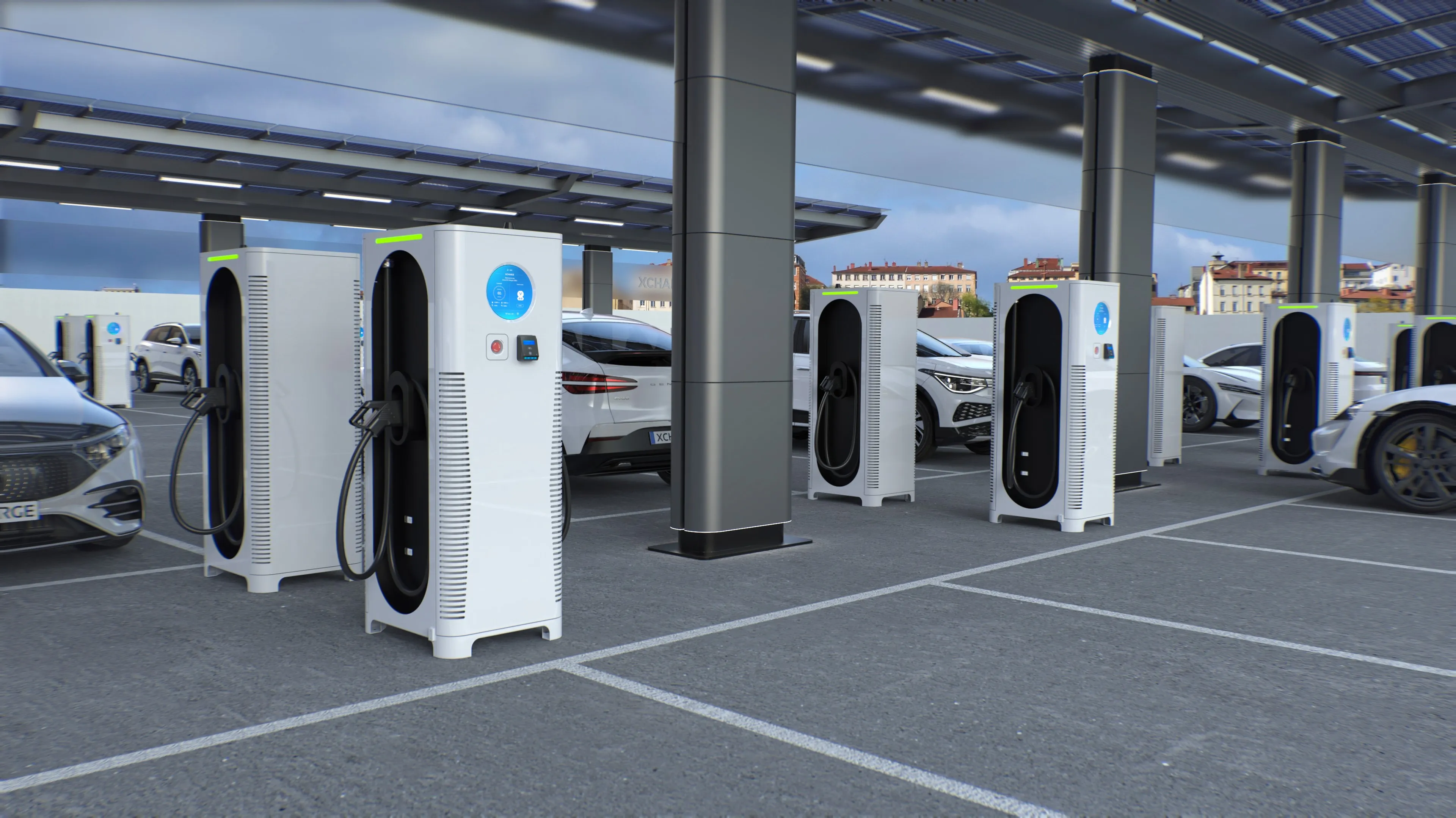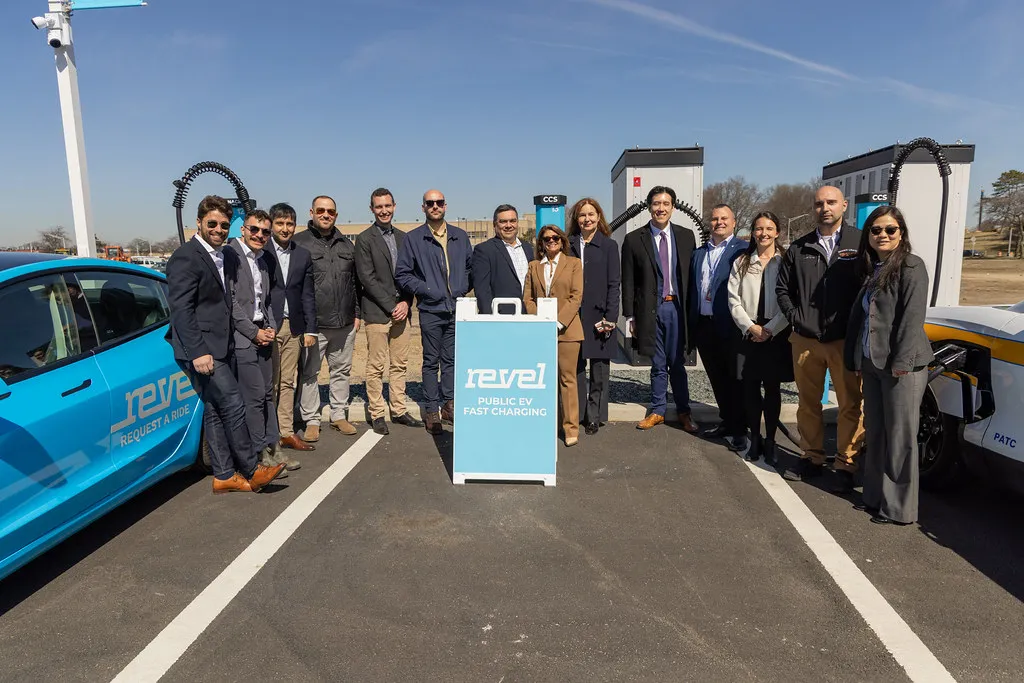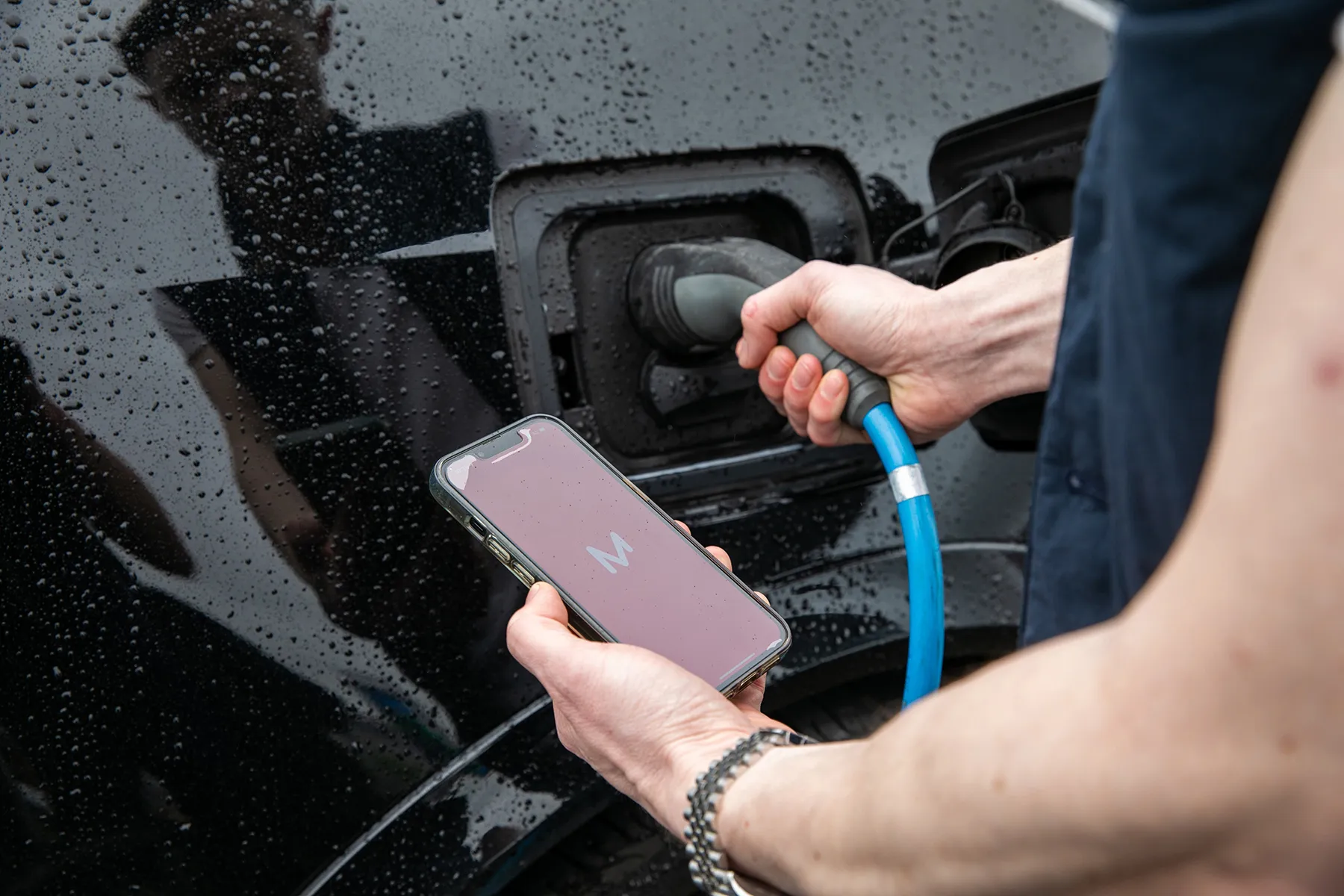
UK bus operator First Bus has introduced First Charge as the new identity for its nationwide programme opening up First Bus’s EV infrastructure to the public.
The First Bus Glasgow Caledonia depot is leading the launch with an expansion of its established shared infrastructure model to include public access for the first time.
First Bus, one of the UK’s largest bus operators, has officially launched ‘First Charge’, the new identity for its growing, shared-charging initiative.
The programme, which will include 15 First Bus depots in Scotland and England, is designed to open up First Bus’s EV infrastructure to support the transition to net zero — for businesses, fleet operators, and now, in Glasgow, for the wider public.
The First Bus Caledonia depot in Glasgow now doubles as a public-facing, ultra-rapid charging hub, with charge points available for up to 34 fleet and consumer vehicles at any one time. Vehicles can be charged at the depot between 9:00 AM and 4:30 PM, at an introductory rate of just £0.39/kWh. This marks the first time First Bus has opened in-depot charging to the general public.
First Bus opens its charging infrastructure to the public, businesses and fleet
Located minutes from Glasgow city centre and supported by on-site staff, the new Caledonia Superhub offers fast, affordable charging for consumers as well as business fleets with a wide range of payment options, including contactless and roaming cards and apps such as Fuuse, Paua, Electroverse, and Allstar.
First Bus is already sharing its depot-based charging facilities with leading businesses across the UK — including DPD, Centrica, Openreach, and Police Scotland. By opening its depots to third-party EV users through First Charge, First Bus is helping to address a critical gap in charging infrastructure — particularly for commercial operators who need reliable, high-power charging in urban areas. Demand continues to grow for private and pre-arranged access at First Charge locations, particularly among operators in the rapidly expanding eHGV sector and other passenger transport services.
Isabel McAllister, First Bus UK chief sustainability and compliance officer, said: “At First Bus, we’re progressing rapidly towards our goal of a zero-emission fleet by 2035, with an investment of over £320m to date.
“With First Charge, we’re building on our position as an industry leader, sharing our infrastructure to accelerate decarbonisation to help other users move faster too.”
Supporting the investment and sharing of electric charging infrastructure to accelerate the transition to cleaner, greener travel, Fiona Hyslop MSP, Cabinet Secretary for Transport, said: “I’m pleased that the First Bus Caledonia Depot is opening its doors to people and communities by providing ultra-rapid electric vehicle charging at affordable pricing.
“When the Scottish Government invested over £6.4m to fund the charging infrastructure at the Caledonia Depot, it was always the intention that First Bus thought innovatively and collaboratively about how it might be used. By providing more public EV charging, we’re now seeing that ambition realised, improving charging opportunities and promoting range confidence for EV drivers.
“Through the new First Charge brand, First Bus is now leading the way by sharing their charging infrastructure, adding to Scotland’s comprehensive public EV charging network and continuing to support the transition to a net zero transport system.”









